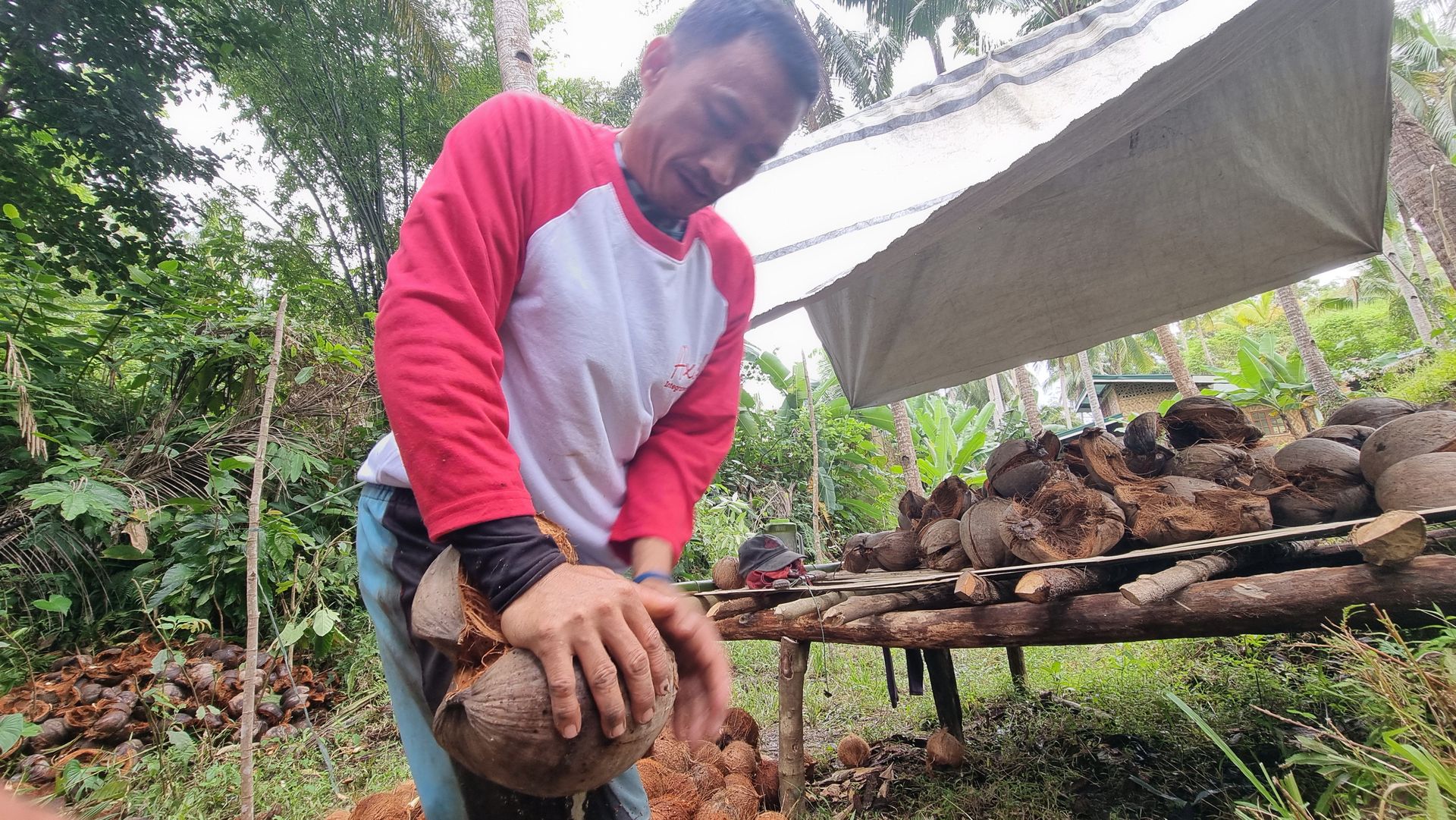₱2,000 a month. That’s all many farmers in Talalora had to survive on in 2021. Then, copra prices collapsed to their lowest in history, dropping to just ₱17 per kilo. For coconut farmers, this wasn’t just a number—it was the difference between putting food on the table or going hungry, sending their children to school or keeping them home. The sharp decline in prices pushed many to the brink, forcing them to reduce production or look for alternative sources of income just to survive.
According to the Special Area for Agricultural Development (SAAD) survey, the average monthly income of farmers in Talalora ranged between ₱2,000 to ₱4,000, barely enough to cover basic living expenses. With copra prices at their lowest, many farming families were pushed into deeper financial insecurity, affecting access to food, education, and healthcare. Some left their farms to work as laborers in nearby towns, while others relied on government aid to get by.

Talalora is classified as a Geographically Isolated and Disadvantaged Area (GIDA), which adds another layer of difficulty for farmers. Limited infrastructure, inadequate road networks, and high transportation costs make it challenging to bring agricultural products to larger markets in the cities. The remoteness of the town often results in higher logistical expenses, lower farmgate prices, and reduced economic opportunities, further straining the livelihoods of farmers.
The Economic Impact of Copra’s Rise and Fall
The fluctuation in copra prices has had a direct impact on Talalora’s local economy. When prices dropped to ₱17 per kilo, the reduced income of farmers led to a sharp decline in local spending. Small businesses, such as sari-sari stores, transportation services, and local markets, suffered as farmers could no longer afford to spend beyond their basic necessities. The reduced economic activity created a ripple effect, slowing down the overall growth of the town.
With the recovery of copra prices to ₱40 per kilo, the local economy is beginning to stabilize. Farmers now have more disposable income, which means they can purchase goods, invest in home improvements, and support local businesses. The increase in financial stability also allows families to prioritize education, healthcare, and other essential needs, improving the overall well-being of the community. Additionally, higher prices make coconut farming more attractive again, encouraging younger generations to remain in agriculture rather than seeking opportunities elsewhere.
A Story of Resilience
Igan, a 40-year-old coconut farmer in Talalora, removes the husk from coconuts as part of copra production, a livelihood passed down for generations.
Take Igan, a 40-year-old coconut farmer who has worked the land for over three decades. In 2021, he could barely earn enough from copra to buy rice for his family. With no savings and no alternative livelihood, he contemplated giving up farming altogether. But he held on, believing that the industry would recover. Today, with copra prices soaring to ₱40 per kilo, he has finally been able to repair his old nipa house, comfortably send his children to school. “Hindi lang kami nabubuhay ngayon, may pag-asa na rin kami sa kinabukasan,” he says.
This price increase has a significant economic and social impact—farmers are now able to reinvest in their farms, improve their families' quality of life, and contribute more to the local economy. The future of copra farming depends on how we support our farmers today. More importantly, it restores faith in farming as a sustainable livelihood, encouraging younger generations to continue the legacy of coconut farming in Talalora.
At Axel Integrated Farm, we remain committed to supporting local farmers and promoting sustainable, high-quality coconut products. This price recovery highlights the resilience of our farming communities and the importance of continuous agricultural development.
💬 If prices dropped again tomorrow, how would it affect families like Mang Jun’s? Share your thoughts below.
#FarmersDiary #CopraProduction #CoconutFarming #Talalora #SustainableAgriculture
